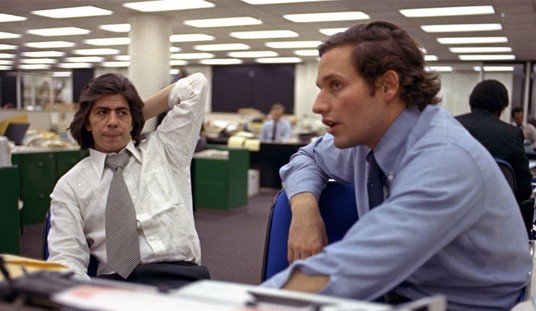The whole point of Holder’s presser on Tuesday, I thought, was to stress that the DOJ had to take extraordinary action in subpoenaing the AP’s phone records because the leak itself was so extraordinary. The clear impression was that the AP’s story had put the public in danger by compromising operations in Yemen, therefore the DOJ had to go the extra mile in finding out which national-security official had blabbed. Direct quote from Holder:
“I’ve been a prosecutor since 1976, and I have to say that this is among, if not the most serious – it’s in the top two or three – most serious leaks that I’ve ever seen,” Holder added. “It put the American people at risk. And that is not hyperbole.”
Fast-forward to today. Was the public ever actually at risk? Why, no, says WaPo. In fact, the AP held the story for days so as not to jeopardize U.S. counterterror ops, and only went ahead and published after the CIA assured them that there was no longer a risk. Nothing was compromised. Maybe Holder simply meant that the leak could have put the public at risk had the AP published right away, but WaPo seems to have another theory about why the White House was so angry afterward:
For five days, reporters at the Associated Press had been sitting on a big scoop about a foiled al-Qaeda plot at the request of CIA officials. Then, in a hastily scheduled Monday morning meeting, the journalists were asked by agency officials to hold off on publishing the story for just one more day.
The CIA officials, who had initially cited national security concerns in an attempt to delay publication, no longer had those worries, according to individuals familiar with the exchange. Instead, the Obama administration was planning to announce the successful counterterrorism operation that Tuesday…
Now, some members of Congress and media advocates are questioning why the administration viewed the leak that led to the May 7 AP story as so grave.
The AP was prepared to publish on May 2, 2012, the one-year anniversary of the Bin Laden killing, but held off at the CIA’s request for security reasons. A few days later, there were no more security reasons — but there was a political reason:
When the journalists rejected a plea to hold off longer, the CIA then offered a compromise. Would they wait a day if AP could have the story exclusively for an hour, with no government officials confirming it for that time?
The reporters left the meeting to discuss the idea with their editors. Within an hour, an administration official was on the line to AP’s offices.
The White House had quashed the one-hour offer as impossible. AP could have the story exclusively for five minutes before the White House made its own announcement. AP then rejected the request to postpone publication any longer.
Am I understanding that correctly? The CIA went on bargaining with the AP after the security worries had evaporated, purely in the interest of preventing the administration from being scooped on its glorious “plot foiled” announcement the next day? (John Brennan ended up on “Good Morning, America” the next morning to crow about the intel victory.) And when the AP didn’t comply — even though it had been, apparently, entirely cooperative up to that point — the DOJ went hunting for its phone records without so much as a polite request first? Also, who was the “administration official” in the White House that couldn’t wait more than five whole minutes after the news broke for Team Obama to take credit, six months out from an election?
The Right Sphere, writing about this same story, comments, “Stealing the Obama administration’s thunder is now grounds for secret subpoenas on the press.” What’s going on here?
Update: To repeat a point made above, and needless to say, it’s perfectly defensible to pursue a leaker even if the leak didn’t end up jeopardizing national security. No harm was done this time thanks to the AP’s discretion, but the same leaker might come back to bite U.S. intelligence in the future. The real questions here are (1) why was the CIA bargaining for more time with the AP after the national-security threat had passed, (2) why was the mysterious White House official so determined not to give the AP a scoop of more than five minutes, despite their cooperation in holding the story, and (3) why wasn’t the AP asked for its phone records first before a subpoena was filed? I understand why the DOJ might not want to tip them off, but they’d been agreeable to the CIA in not publishing on May 2. There was no accommodation at all that could be made with them, even in the form of prompt notice?







Join the conversation as a VIP Member